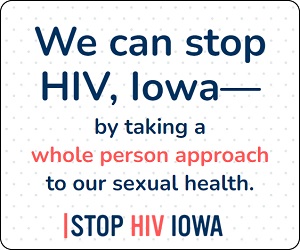Des Moines Water Works Board of Trustees Issues Statement Regarding U.S. EPA Action on Impaired Waters
8/14/2025DES MOINES – The Des Moines Water Works Board of Trustees, representing Iowa’s largest drinking water utility, today announced its opposition to the U.S. Environmental Protection Agency’s announcement to rescind placing segments of the Raccoon and Des Moines rivers on Iowa’s impaired waters list.
“The impairment of the Raccoon and Des Moines rivers threatens our mission and ability to safely providing drinking water on behalf of the region to 600,000 central Iowans,” said Amy Kahler, the CEO and General Manager of Des Moines Water Works (DMWW). DMWW is the largest water producer for Central Iowa Water Works, a 12-member regional water authority.
“This reversal does not align with the operational and financial realities we are experiencing from a boots-on-the-ground view. It is becoming increasingly difficult to treat source water with the high concentrations of nitrate we are seeing,” Kahler continued.
This year, nitrate concentrations were higher than the EPA standard of 10 milligrams per liter (mg/L) for 33 days in June and July in all three sources of water that can be used at the Fleur Drive Treatment Plant. Because of treatment expertise and mandatory water conservation measures, all finished drinking water continued to meet state and federal safe drinking water standards. The nitrate removal facility – an added step of treatment constructed in the 1990s because of the nitrate issue in the state’s source waters – has ran for 112 days so far this year.
The two segments DMWW supports being on Iowa’s list of Section 303 (d) impaired waters directly affect central Iowa water users:
1. Des Moines River IA 04-UDM-121: a 6.53-mile segment of the river, which includes DMWW’s intake at Prospect Park in Des Moines.
2. Raccoon River IA 04-RAC-1116: a 15.59-mile segment of the river, including the entire section that runs through Des Moines Water Works Park and includes the intake at the Fleur Drive Treatment Plant in Des Moines.
The EPA has rescinded placing these two segments on the impaired waters list after receiving opposition from the Iowa Department of Natural Resources, claiming the decision violated established procedures and federal law.
“Human health and safety are our top priority,” said Andrea Boulton, chair of the Board of Trustees. “We cannot lose sight of that amid a disagreement on technical language. We clearly have a problem in the state of Iowa when water quality issues prevent our drinking water utilities from being able to make clean, safe water for Iowans.”
A recent report from Polk County, the Central Iowa Source Water Research Assessment, confirmed what Des Moines Water Works has shared for years – nitrate concentrations in the Des Moines and Raccoon rivers are increasing. In addition to the water quality concerns from the drinking water perspective, the report also shares that poor water quality is now having implications on the ability to recreate in Iowa’s waters, affecting aquatic life, and could threaten economic development and the business community.
For the first time ever, the region’s water authority, Central Iowa Water Works, banned lawn watering because of the imminent risk of violating the nitrate standard. This year, nitrate concentrations peaked at 20.55 mg/L in the Raccoon River, 17.15 mg/L in the Des Moines River, and 12.14 mg/L in the infiltration gallery. While peaks can be manageable for treatment, all three sources stayed above the safe drinking water standard of 10 mg/L for more than 30 days in June and July, requiring the lawn water ban to reduce customer demand and ensure enough treatment capacity to produce safe drinking water.
“The Des Moines and Raccoon rivers must have targeted water quality plans to be sustainable sources of drinking water for generations,” Kahler, DMWW’s CEO, said. “Working together, Iowans can clear red tape, set goals, and take action to protect our rivers — and our health.”














